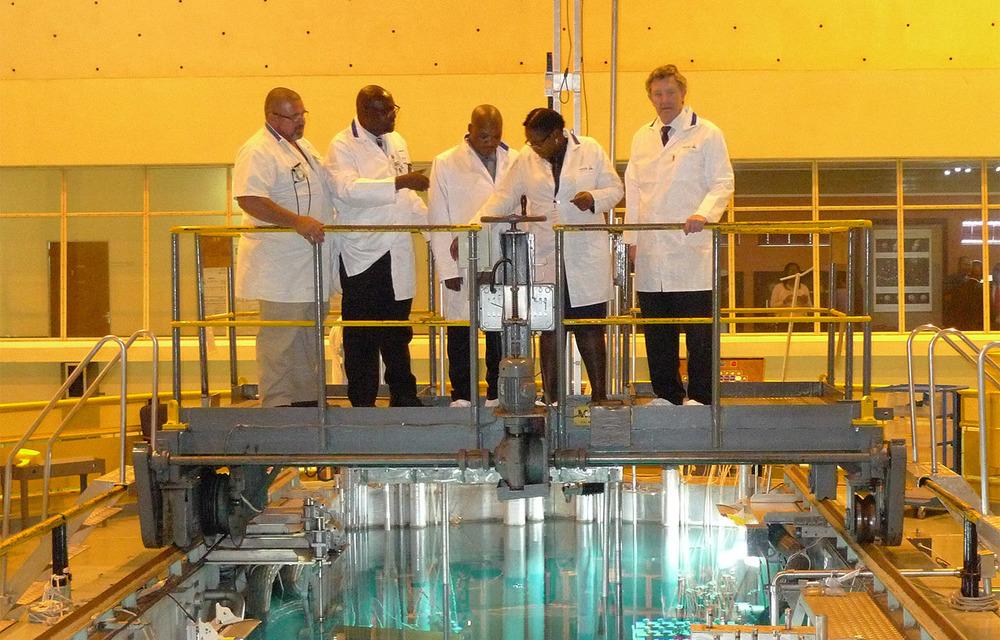Explore Our Bill Payment Services:

- Salary And Allowance
- Engineers Salary
- South Africa
Salary Structure And Allowances Of Industrial Engineering In South Africa
Industrial engineering has long been one of the most versatile and impactful branches of engineering. Its focus on optimizing processes, improving systems, and reducing costs makes it a cornerstone discipline for industries such as manufacturing, logistics, mining, healthcare, and consulting. In South Africa, industrial engineers play a critical role in helping companies remain competitive in a rapidly evolving global market.
While career satisfaction often depends on more than just financial rewards, understanding the salary and allowance structures associated with this profession is essential for both aspiring and practicing industrial engineers. In this blog, we will explore in detail the salary ranges, benefits, regional variations, and factors influencing compensation for industrial engineers in South Africa as of 2025.
Base Salaries: The Big Picture
When considering the financial prospects of industrial engineering, the average monthly salary provides a useful starting point. Across South Africa, industrial engineers typically earn between R 28,000 and R 31,000 per month, translating to an annual salary of around R 340,000 to R 380,000.
These averages highlight the stability and competitiveness of the profession, especially when compared with many other engineering and technical roles. However, averages alone don’t capture the full picture—earnings can differ significantly depending on career stage, specialization, and location.
Salary by Career Stage and Experience
One of the strongest determinants of salary is experience. Industrial engineers can expect their earnings to grow steadily as they move through different career phases.
-
Entry-level (0–3 years): Graduates and junior engineers usually earn between R 190,000 and R 250,000 per year, or approximately R 15,000–R 21,000 per month. Some entry-level positions, particularly in large companies or high-demand industries, may push closer to R 400,000 annually.
-
Mid-career (3–9 years): With more professional experience and responsibility, salaries rise sharply. Engineers in this range typically earn R 350,000–R 600,000 per year, equating to R 28,000–R 50,000 per month.
-
Senior level (10–20 years): Industrial engineers with a decade or more of experience often command salaries of R 600,000–R 900,000 annually, or about R 50,000–R 75,000 per month. At this level, many professionals transition into leadership roles, where salaries continue to grow.
-
Late career (20+ years): Highly experienced engineers, especially those in management or consulting, often earn well over R 1 million per year. In specialized sectors, this figure can climb to R 1.5 million or more, and in rare cases—particularly within consulting firms or multinational corporations—industrial engineers may earn R 2 million or more annually.
This progression reflects not only the accumulation of technical expertise but also the increasing leadership and strategic responsibilities industrial engineers take on over time.
Sector and Role Variations
Compensation in industrial engineering isn’t uniform across roles or industries.
-
Manufacturing and Production: Traditionally the backbone of industrial engineering, salaries here are competitive but average, typically aligning with the national range.
-
Logistics and Supply Chain: Engineers specializing in supply chain optimization often earn above-average salaries, with mid- to senior-level roles crossing the R 1 million annual mark.
-
Automation and Data Analytics: With the rise of Industry 4.0, industrial engineers skilled in automation, robotics, or data-driven process optimization are in particularly high demand. These professionals can expect salaries ranging from R 1.2 million to R 1.8 million per year at senior levels.
-
Consulting and Management: The highest-paying path for industrial engineers is often consulting. Senior consultants, project managers, or directors in consultancy or multinational firms frequently exceed R 2 million annually, reflecting both their technical expertise and strategic leadership.
Regional Salary Differences
Geography plays a major role in shaping salary expectations. Industrial engineers in South Africa’s economic hubs typically earn significantly more than those in smaller cities or rural regions.
-
Johannesburg: The financial and industrial capital of South Africa, Johannesburg offers the highest salaries, with averages often above R 50,000 per month.
-
Pretoria: Similar to Johannesburg, Pretoria salaries hover just under R 50,000 per month.
-
East Rand and Richards Bay: These regions, driven by industrial and port activity, show mid-level salaries ranging from R 30,000 to R 40,000 per month.
-
Cape Town and Durban: Despite being major metropolitan areas, salaries here are slightly lower than Johannesburg and Pretoria, averaging around R 27,000 to R 30,000 per month.
These variations reflect cost of living differences, industrial activity concentrations, and demand for engineering skills in different areas.
Public vs Private Sector
Industrial engineers employed in the public sector (such as state-owned enterprises or government projects) may earn slightly more than their private-sector counterparts—on average, about 7% higher. However, private sector roles often provide greater opportunities for bonuses, career growth, and specialized projects, which can ultimately surpass public sector pay in the long run.
Allowances and Benefits
Salary is only one part of the compensation package. Many companies enhance their offers with allowances, benefits, and bonuses, making industrial engineering financially attractive.
a) Performance Bonuses
Performance-related pay is a standard feature in industrial engineering roles. Bonuses typically range from R 10,000 to R 60,000 annually, depending on seniority and performance. In some firms, these can climb higher, especially in consulting or profit-driven environments.
b) Additional Monthly Pay
On top of base salaries, many companies provide additional pay such as commission, profit-sharing, or project-based incentives. This often adds R 2,000–R 3,000 per month to total earnings.
c) Healthcare Benefits
Medical aid contributions are common in South Africa, and many engineering firms include partial or full medical coverage in their benefits packages. This significantly reduces personal healthcare costs and adds considerable value to total compensation.
d) Retirement Contributions
Employers frequently contribute to pension or provident funds, ensuring long-term financial stability for engineers. These contributions vary but can represent a significant percentage of annual salary.
e) Travel and Mobility Allowances
For roles requiring frequent travel or site visits, companies may offer transport stipends, fuel allowances, or even company vehicles. These perks are especially common in large industrial or logistics companies.
f) Other Perks
Some firms also provide professional development support, covering costs for postgraduate studies, certifications, or international training programs. Long-term incentives such as profit-sharing schemes or share options are more common in senior or executive roles.
Factors Influencing Salary Levels
Several factors influence what an industrial engineer earns in South Africa:
-
Experience – Salaries grow exponentially as engineers move from entry-level to senior positions.
-
Specialization – Expertise in high-demand fields like automation, supply chain, or analytics yields premium pay.
-
Employer Size and Type – Large multinational firms typically pay better than smaller local companies.
-
Geographic Location – Engineers in Johannesburg and Pretoria enjoy higher salaries than those in coastal cities.
-
Industry Segment – Automotive, mining, and logistics industries often pay more than healthcare or education.
-
Performance – Bonus structures and project performance directly impact total annual earnings.
Career Outlook and Earning Potential
The financial trajectory of industrial engineering in South Africa is promising. The growing emphasis on efficiency, automation, and cost-saving makes industrial engineers indispensable across industries.
-
Entry-level engineers can look forward to R 200,000–R 400,000 annually, with steady increments as they gain experience.
-
Mid-career professionals often earn R 350,000–R 600,000 annually.
-
Senior engineers typically land in the R 600,000–R 900,000 range, with higher earnings possible in specialized roles.
-
Exceptional professionals in consultancy or management can surpass R 2 million annually, making industrial engineering one of the most financially rewarding engineering disciplines in the country.
Conclusion
Industrial engineering in South Africa offers not only financial stability but also opportunities for exponential growth. Salaries range widely depending on career stage, specialization, and location, with average earnings around R 28,000–R 31,000 per month. Allowances and benefits—such as bonuses, medical aid, retirement contributions, and travel stipends—further enhance total compensation.
For young professionals, industrial engineering offers a solid foundation with rapid earning potential. For experienced engineers, the path to high-paying roles in consulting, management, or specialized industries remains strong and rewarding.
Ultimately, industrial engineering stands out as a career that blends problem-solving with strong financial returns, making it one of the most attractive professions in South Africa today.









